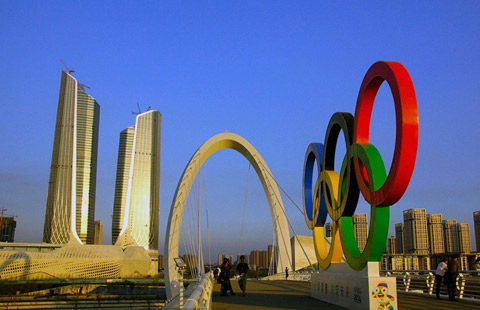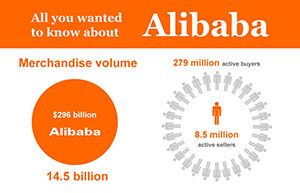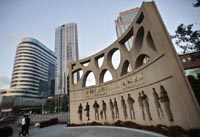Financial reforms top Li's agenda in Shanghai
By Zhao Yinan and Shi Jing in Shanghai (chinadaily.com.cn) Updated: 2014-09-18 14:22Whether reforms, especially financial reform, can be felt at the street level tops the concern of Premier Li Keqiang's first stop at the Free Trade Zone in Shanghai on Thursday.
The premier arrived at the comprehensive service center of China (Shanghai) Pilot Free Trade Zone on Thursday morning, kicking off a fact-finding review of the area after the reform front-liner has been launched a year.
Li's trip came as debate has swirled on whether China should sacrifice reform to secure better economic growth among business owners and economists.
Media reported the People's Bank of China (PBOC) has injected 500 billion yuan ($81 billion) into the nation's five largest banks to improve liquidity, following continued slumps in major economic indicators.
China's FDI fell 14 percent followed data indicating the weakest industrial-output expansion since the global financial crisis in 2008, as well as moderating investment and retail sales growth.
"How do you feel about the reforms? Can you feel the changes?" Li asked the public who came for company registration and investment projects approval in the center.
Du Yuchuan, general manager of company registration service, said the benefits of the FTZ's financial reform are "yet to be seen".
"One of the financial reforms include the capital flow between domestic and overseas bank accounts, but the reform is still lack of details for implementation. Even bank officers are not clear on how these reform measures should be carried out," Deng said.
"Many clients asked if the FTZ offers tax refunds, which I said no. The FTZ should not be a place for favorable policies such as tax cuts. It should be a test for facilitated customs clearance and RMB's internalization," he said.
Wu Qiong, shareholder of a company registration agency from Xuzhou city of East China's Jiangsu province, told Premier Li that his company expects more opening policy regarding overseas financing. Li suggests Wu learn more about the Hong Kong Shanghai stock link. Wu said he has been watching FTZ's progress in the past few months and the progress will be even more noticeable as President Xi Jinping and Premier Li both paid visit to this area. His company has been largely benefited by the shortened company registration process and the simplified taxation.
Yan Lun, business manager of a fertilizer import and export company from Hubei province, just submitted his company's registration application materials Thursday morning. Yan's company registered in the FTZ will embark on a new area of food and wine import and export business once it completes registration after 10 days.
He said the FTZ authorities will come up with more favorable financing policies and more detailed opening policies.
About 12,000 companies are registered in the year, more than the total number of new companies registration in Shanghai Bonded Area in the past two decades. Every month, there are 190 new foreign companies registered in the zone, and there are now a total of 1,245 foreign companies.
The FTZ has received 740 billion yuan of sales revenue and the residential property price has doubled in the year.
But officials with the Ministry of Commerce said previously that the FTZ, a test bed for deepening market-oriented reforms and boosting economic vitality, will not flourish everywhere in a short period of time in China, and the model will only be introduced to places outside Shanghai after enough experiences have been drawn.
At least 26 provincial areas have included plans about launching similar zones in their government work report this year, but none has seen the possibility of being approved by the central government.
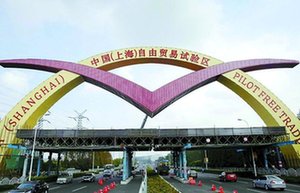 |
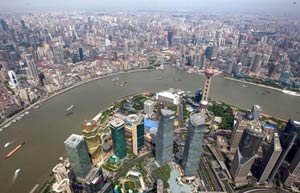 |
| Shanghai FTZ 'negative list' may be cut by 40% to boost more interest |
|
- Microsoft to launch Xbox One in China
- China's first Hermes Maison opening in Shanghai
- China opens gold market to foreigners
- Financial reforms top Li's agenda in Shanghai
- 11 Japanese firms fined for antitrust violation
- Alibaba in talks with Snapdeal to enter India: Economic Times
- 7 Chinese cities that still restrict home buying
- Central bank advisor stresses prudent policy, not time for rate cut
